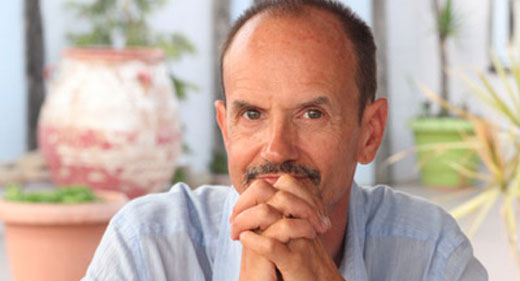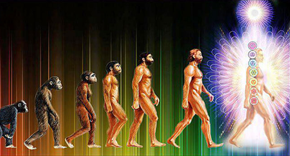by Arjuna Ardagh: A few days ago, I went out for dinner with an old friend. We have known each other for about 15 years…

We have been in a men’s group together for many years, and have shared many adventures. Since we had not seen each other for several months, we had a lot of catching up to do.
“How are the children?”
“Fantastic!”
“Did you have a good summer?”
“Really great!”
“How’s your relationship?”
“Oh it’s wonderful.”
“How’s your health?”
“Much better, thanks.”
And so it went on. We stayed in this mixture of light banter and celebration for probably half an hour.
I do not know if we were deliberately avoiding the subject, but finally, after about half an hour, we came around to talking about our work. He has been very busy doing what he loves to do most, and all is good. I told him that I have been traveling, and teaching coaching trainings. Then I also mentioned that I have been doing a lot more blogging, putting more videos out on YouTube, and that I have been doing a lot of radio interviews (some of which are national and reaching millions of people).
At this point my friend (and very soon you may start to question if he really is a friend, but actually he is, despite what happened next) became more visibly uncomfortable. He shifted in his seat and looked at me with suspicion.
“Why are you doing that?” he asked. “Why are you putting your opinions out and trying to influence people? I think we are overdosed with everybody’s opinions already. We all need some peace and quiet.”
It was a reasonable question and he had a reasonable point. So I said to him “Well, it is true that there’s lots of people expressing opinions. But many of those opinions are funded by big banks, or big oil, or big pharma, and many of those opinions are also voiced by loud, angry, right-wing pundits. So I feel I have a certain gift of eloquence and clarity, and I feel that I have something useful to contribute to the collective debate.”
Now his eyes started to bulge and he shifted from uncomfortable to downright angry. “Who do you think you are?” he asked, “Why do you think anybody should be interested in your opinion about anything? Whatever view you have is bound to be only partial.”
My friend was slowly metamorphosing into the ghastly love child of Rush Limbaugh and Pat Robinson. “Don’t you see what damage you’re doing to people,” he went on, “trying to influence them with your prejudice?”
At this point I was speechless. I was nervously glancing out of the corner of my eye, to make sure that his hand was a safe distance away from any sharp object.
He glared at me, his eyes now visibly protruding, “Don’t you see the damage you’re doing to yourself?”
I mumbled some kind of British mantra like “Well, I um, really, er, I, um, well, don’t really, um, you know, um…” which got him even more riled up. “That’s the pitiful thing about it. You don’t see the way you’re damaging yourself.”
Extremely uncomfortable as the situation had become, I saw that I was going to have to now say something in response. “I hear you,” I said, still in British reserved mode, “and I really get that this is your opinion, and you’ve got a lot of charge on it. But not everybody would agree.”
“It’s not my opinion,” he barked back. “It’s the TRUTH, and you don’t get it.”
I tried to change the subject and talk about something more benign, like “What are you doing for Thanksgiving?” or “Christmas Decorations,” but he was clearly perturbed and asked for the bill.
Later that evening my friend apologized for getting so intense. I still do not know if he or I really understood what had happened between us. It was an interesting and extremely powerful evening for me, one that I’m very grateful for. It allowed me to hear somebody’s very strong opinion about what I am doing with my life, and then to take it in, and check for the validity. More important, it allowed me to check in, to feel if I was deluding myself in some way. I discovered there a kind of calm centeredness, a feeling of being in the right place, at the right time, and a feeling of knowing that I am doing what I was born to do on the planet.
If you ever have any intention of writing blog posts, or putting out videos on YouTube, that say anything new or different or out-of-the-box, it is a good idea to prepare yourself for crucifixion.
You are bound to get your taste of it very quickly from the “trollers” and “haters” and a whole bunch of other epithets for anonymous people who make it their business to tear apart anything they can find on the Internet. That kind of attack is an absolute given.
You are also going to face a deluge of criticism, from people you don’t know and who are actually ideologically opposed to your views. If you blog about gay marriage, you are going to have the fundamentalist Christians in your face. If you blog about GMO food, you can bet your bottom dollar that Monsanto will hire somebody to expose you as a total schmuck.
But what may come as more of a surprise, and it is certainly comes as a surprise to me, is that you also get attacked from people you love, and people who love you.
It is a mystery how all that works. I cannot begin to explain it. Many of my friends who also write and “vlog” have reported on the same thing. Some explain it as envy (“I am getting more Facebook shares than they are, and they are jealous”). Some explain it as an ancient spiritual myth, that speaking out is a symptom of ‘ego,’ and will only drag you into a dark hole of your own self-aggrandizing deceit. Others explain it as a collective terror we share of crucifixion: illustrated by stories we heard as children of Jesus, but also of Buddha being poisoned, Mansoor being stoned to death, and many more.
It has become an almost meaningless cliché these days: to say that we live in pivotal times. But we do, more than any other generation in history. Everything is so different for us than it was for our parents, or our grandparents. We have seen everything change in our lifetime: in technology, in economics, in the way food is produced, in politics, and in spirituality. Some of it may seem like good news, some of it may seem like bad news.
But each and every one of the changes we have witnessed has to begin with an idea, a new way of looking at things. Ideas become speech. Speech becomes debate. Debate becomes action. Action becomes change.
Just in case you happen to be suffering from the same terror of disapproval that has restricted me most of my life, I would like to encourage you to prepare yourself for crucifixion. It is not nearly as bad as we fear in anticipation. And I have found that the resurrection on the other side is very sweet.









































